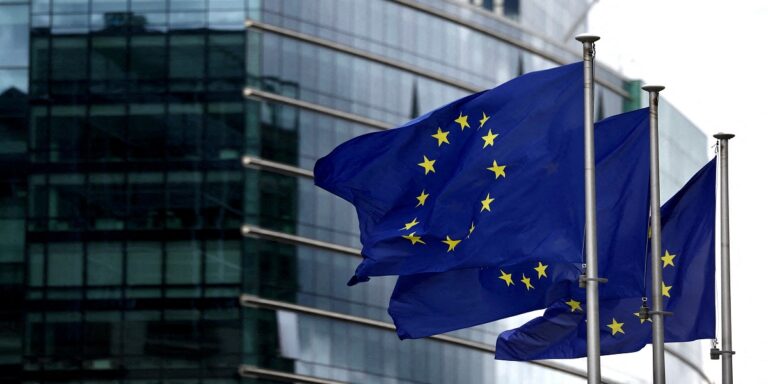Cannabidiol (CBD) and tetrahydrocannabinol (THC) are two of the most well-known cannabinoids found in the cannabis plant. While they share some similarities, their effects on the body and their legal status are quite different. Understanding these differences is crucial for anyone considering the use of cannabis-derived products, whether for medical or recreational purposes.

What is CBD And THC?
- CBD, short for cannabidiol, is a non-psychoactive compound found in cannabis. Unlike THC, it does not produce a “high.” CBD is extracted from hemp plants and is commonly used for its therapeutic benefits. It interacts with the body’s endocannabinoid system (ECS) to help regulate various functions such as pain, mood, and sleep.
- THC, or tetrahydrocannabinol, is the main psychoactive compound in cannabis. It is responsible for the euphoric sensation or “high” associated with marijuana use. THC is used both recreationally and medicinally, depending on the legal framework of the region.
Sources of CBD And THC
- CBD is primarily derived from hemp, a variety of cannabis that contains low levels of THC. It can also be extracted from marijuana, but this is less common due to legal restrictions. Hemp-derived CBD is legal in many parts of the world, making it more accessible to consumers.
- THC is found in higher concentrations in marijuana, a variety of cannabis that has been cultivated to enhance its psychoactive effects. It can also be present in trace amounts in hemp, but not enough to produce any significant psychoactive effects.
How CBD And THC Works in the Body
- CBD interacts with the ECS, which consists of receptors (CB1 and CB2) distributed throughout the body. Unlike THC, which binds directly to these receptors, CBD influences them indirectly. This modulation helps in maintaining homeostasis, the body’s internal balance.
- THC binds directly to CB1 receptors in the brain, leading to its psychoactive effects. This binding affects areas of the brain responsible for pleasure, memory, thinking, concentration, and movement, explaining the broad range of effects experienced by users.
Benefits of CBD And THC
- CBD is praised for its wide range of health benefits. It is used to alleviate chronic pain, reduce anxiety and depression, improve sleep, and even mitigate symptoms of epilepsy. Research is ongoing, and new benefits are continually being discovered.
- THC has several therapeutic uses. It is effective in pain relief, reducing nausea and vomiting (especially in chemotherapy patients), stimulating appetite in individuals with eating disorders, and managing symptoms of multiple sclerosis. Its psychoactive effects can also be beneficial in certain psychological conditions.
Legal Status of CBD And THC
- The legal status of CBD varies by country and state. In the United States, hemp-derived CBD with less than 0.3% THC is legal federally but may be restricted in some states. It’s essential to check local laws before purchasing or using CBD products.
- The legality of THC is more restricted compared to CBD. In many parts of the world, THC is classified as a controlled substance. However, several states in the U.S. and countries worldwide have legalized its use for medical and/or recreational purposes under specific regulations.
Chemical Structure
Both CBD and THC have the same molecular formula (C21H30O2) but differ in the arrangement of their atoms. This difference in structure accounts for their varying effects on the human body. While both interact with the ECS, their distinct structures lead to different interactions with cannabinoid receptors.

How CBD and THC Interact with the Endocannabinoid System
Explanation of the Endocannabinoid System
The ECS is a complex cell-signaling system identified in the early 1990s. It is involved in regulating a range of functions and processes, including sleep, mood, appetite, memory, and reproduction.
How CBD And THC Interacts with the ECS
- CBD does not bind directly to CB1 or CB2 receptors. Instead, it influences these receptors indirectly by enhancing the body’s natural endocannabinoids and affecting the receptors’ efficiency. This indirect interaction helps mitigate pain and inflammation, reduce anxiety, and improve sleep.
- THC binds directly to CB1 receptors in the brain and central nervous system, producing psychoactive effects. It also interacts with CB2 receptors found in the peripheral organs and immune system, contributing to its therapeutic properties, such as anti-inflammatory effects.
Key Differences in Interaction
The primary difference lies in their binding mechanisms. While THC’s direct binding leads to a “high,” CBD’s indirect influence does not produce psychoactive effects but offers various therapeutic benefits without the euphoria.

Psychoactive Effects
Psychoactivity refers to a substance’s ability to affect the mind, mood, or behavior. THC is known for its psychoactive properties, which can alter perception, mood, consciousness, and behavior.
How THC Causes a High
THC causes a high by stimulating brain cells to release dopamine, a neurotransmitter associated with pleasure and reward. This leads to altered sensory perceptions and a feeling of euphoria.
Why CBD Doesn’t Cause a High
CBD does not produce a high because it does not bind directly to CB1 receptors. Instead, it modulates receptor activity and enhances the body’s natural cannabinoid production, leading to therapeutic effects without psychoactivity.
Effects on Mental Health
THC’s psychoactive properties can have both positive and negative effects on mental health. While it can alleviate symptoms of anxiety and depression, high doses or prolonged use can lead to paranoia or exacerbate mental health issues. CBD, on the other hand, is widely recognized for its anxiolytic (anxiety-reducing) properties without the risk of inducing a high.

Medical Benefits
Therapeutic Uses of CBD and THC
- CBD is widely used for its anti-inflammatory, analgesic (pain-relieving), anxiolytic, and anticonvulsant properties. It is beneficial for conditions such as chronic pain, anxiety disorders, epilepsy, and neurodegenerative diseases.
- THC is effective in managing pain, nausea, and appetite stimulation. It is commonly prescribed for conditions like cancer-related nausea, glaucoma, and spasticity in multiple sclerosis. Its psychoactive effects can also help alleviate certain mental health conditions.
Comparing Medical Benefits
Both cannabinoids have overlapping and distinct benefits. While THC is more effective for acute symptoms like severe pain and nausea, CBD is preferred for chronic conditions and long-term use due to its non-psychoactive nature.

Side Effects
Common Side Effects of CBD and THC
- CBD is generally well-tolerated, with few side effects. Some users may experience dry mouth, diarrhea, reduced appetite, drowsiness, and fatigue. These side effects are typically mild and manageable.
- THC’s side effects can be more pronounced, including dry mouth, red eyes, increased heart rate, coordination problems, and memory loss. High doses can lead to anxiety, paranoia, and hallucinations.
Managing Side Effects
It’s important to start with low doses and gradually increase to minimize side effects. Consulting with a healthcare provider can help determine the appropriate dosage and usage for individual needs.
Long-term Impact
Long-term use of THC, especially in high doses, may lead to tolerance, dependence, and potential mental health issues. CBD’s long-term effects are still under study, but it is generally considered safe for prolonged use.

Methods of Consumption
CBD
- CBD oil is one of the most popular forms of CBD, used sublingually (under the tongue) for quick absorption.
- CBD capsules offer a convenient and precise dosage, making them ideal for daily use.
- CBD edibles, such as gummies, provide a tasty and discreet way to consume CBD.
- CBD-infused creams and balms are applied directly to the skin for localized relief of pain and inflammation.
- Vaping CBD allows for rapid absorption, but its safety is still under scrutiny due to potential lung health concerns.
THC
- Smoking marijuana is the traditional method of consuming THC, providing quick onset of effects.
- THC edibles offer long-lasting effects, but their onset is slower, making it easy to overconsume if not careful.
- THC tinctures are consumed sublingually, offering a controlled dosage and quick absorption.
- THC-infused topicals provide localized pain relief without psychoactive effects, as they do not enter the bloodstream.

Dosage and Usage
Recommended Dosages for CBD and THC
- CBD dosages vary depending on the condition being treated, individual tolerance, and product concentration. Starting with a low dose and gradually increasing is a common approach.
- THC dosages are typically lower due to its potent psychoactive effects. Microdosing (small, controlled doses) is often recommended to avoid unwanted side effects.
Factors Influencing Dosage
Factors such as body weight, metabolism, and the severity of the condition can influence the appropriate dosage for both CBD and THC.
Safety Guidelines
Consulting with a healthcare provider, especially when using CBD or THC for medical purposes, ensures safe and effective use.

Legal Status of CBD and THC in Different Regions
- CBD derived from hemp is legal in many countries, including the United States, where it must contain less than 0.3% THC. However, regulations can vary by state and country.
- THC is more tightly regulated. While some states and countries have legalized it for medical and recreational use, others maintain strict prohibitions.

CBD vs. THC in Drug Testing
- Pure CBD typically does not show up on standard drug tests, but some products may contain trace amounts of THC that could result in a positive test.
- THC is easily detectable in drug tests, and its metabolites can remain in the body for weeks, depending on frequency of use.

Entourage Effect
The entourage effect refers to the synergistic interaction of cannabinoids when used together.this phenomenon suggests that cannabinoids work better together than individually, enhancing their therapeutic effects.
How CBD and THC Work Together
When used together, CBD and THC can complement each other’s benefits. CBD can mitigate some of the psychoactive effects of THC, while THC can enhance CBD’s therapeutic properties.
Benefits of the Entourage Effect
The combined use of CBD and THC can provide a more comprehensive approach to treatment, potentially improving outcomes for various conditions.
Research on the Entourage Effect
Studies support the entourage effect, indicating that full-spectrum products (containing multiple cannabinoids) are often more effective than isolated compounds.

CBD and THC in Popular Culture
Cannabis has been used for thousands of years for medicinal, spiritual, and recreational purposes. Historical texts from ancient civilizations document its various uses.
Today, CBD is often seen as a wellness product, while THC is associated with recreational use. However, both are increasingly recognized for their medical potential.

Impact on Sleep
How CBD vs. THC Affects Sleep
- CBD can help improve sleep quality by reducing anxiety and pain, common causes of insomnia.
- THC can help users fall asleep faster and stay asleep longer, but high doses may impair sleep quality in the long run.
Studies on Sleep Patterns
Research indicates that while both cannabinoids can aid sleep, individual responses vary. Some studies suggest that CBD may be better for long-term sleep improvement.
Recommendations for Sleep Disorders
For those with sleep disorders, a combination of CBD and THC, under medical supervision, may provide the best results. It’s important to find the right balance to avoid potential side effects.

Pain Relief
- CBD is widely used for chronic pain conditions such as arthritis and neuropathy due to its anti-inflammatory properties.
- THC is effective for acute pain and conditions like multiple sclerosis and cancer-related pain. Its psychoactive effects can also help distract from pain.
Comparative Studies
Studies comparing CBD and THC for pain relief show that a combination often provides the best results, leveraging the benefits of both cannabinoids.

How CBD and THC Alleviates Anxiety
- CBD is known for its anxiolytic properties, helping to reduce anxiety without causing a high. It’s effective for conditions like generalized anxiety disorder and social anxiety.
- THC can also reduce anxiety, but high doses or long-term use may increase anxiety in some individuals. It’s important to use THC cautiously for anxiety relief.
Scientific Findings
Research supports the use of CBD for anxiety relief, while THC’s effects are more variable and depend on dosage and individual response.

CBD and THC’s Effect on Appetite
- CBD may help regulate appetite by reducing inflammation and anxiety, indirectly influencing eating habits.
- THC is well-known for increasing appetite, often referred to as “the munchies.” This can be beneficial for individuals with eating disorders or undergoing treatments that reduce appetite.
Medical Implications
The appetite-stimulating effects of THC are useful in conditions like cancer and AIDS, where maintaining a healthy weight is crucial.

Anti-inflammatory Properties of CBD and THC
- CBD’s anti-inflammatory effects are due to its interaction with the ECS and its ability to modulate immune responses.
- THC also reduces inflammation, primarily through its effects on CB2 receptors in the immune system.
Comparative Analysis
Both cannabinoids are effective in reducing inflammation, but CBD is often preferred for chronic inflammation due to its non-psychoactive nature.
Applications in Chronic Conditions
Conditions like arthritis, inflammatory bowel disease, and neuroinflammation can benefit from the anti-inflammatory properties of CBD and THC.

CBD and THC for Pets
- CBD is commonly used to treat pain, anxiety, and seizures in pets. It is considered safe and well-tolerated.
- THC use in pets is more controversial due to its psychoactive effects. It must be used with caution and under veterinary supervision.
Safety Concerns
Proper dosing is crucial to avoid potential toxicity. CBD is generally safer for pets, while THC should be used sparingly.

Benefits of CBD and THC in Skincare
- CBD’s anti-inflammatory and antioxidant properties make it beneficial for skincare, helping to reduce acne, soothe irritation, and improve overall skin health.
- THC’s potential to reduce inflammation and promote skin health is being explored, though its psychoactive properties limit its use in mainstream products.
Popular Products
CBD-infused creams, serums, and masks are popular in the beauty market. THC-infused products are less common but gaining interest.

CBD and THC for Athletes
Benefits for Recovery and Performance
CBD helps reduce inflammation and pain, aiding in quicker recovery. THC’s pain-relieving effects can also benefit athletes, although its psychoactive effects may be a drawback.
Legal and Ethical Considerations
The use of CBD is widely accepted in sports, but THC remains controversial due to its psychoactive effects and legal status in many regions.

Myths and Misconceptions
Common Myths about CBD and THC
- Myths include the belief that CBD can’t cause any side effects, that it’s the same as THC, or that all CBD products are legal and of high quality.
- Common misconceptions include the idea that THC is only for recreational use, that it has no medical benefits, or that it is universally harmful.
Debunking Misinformation
Education and accurate information are key to dispelling myths. Understanding the science behind CBD and THC helps clarify their true potential and risks.

Choosing Between CBD and THC
Factors to Consider
Considerations include the desired effects, legal status, potential side effects, and individual health conditions.
Personal Needs and Preferences
Individual preferences and health needs play a significant role in choosing between CBD and THC. Consulting with healthcare providers can provide personalized recommendations.
Expert Recommendations
Experts often suggest starting with CBD due to its safety profile and adding THC if additional symptom relief is needed.
Practical Tips
Start with low doses, choose reputable products, and monitor your body’s response. Adjust dosages as needed and seek professional guidance for medical conditions.
FAQ
Can CBD get you high?
No, CBD does not produce a high because it does not bind directly to CB1 receptors.
Is THC legal everywhere?
No, the legality of THC varies by region. Some places have legalized it for medical and recreational use, while others maintain strict prohibitions.
How do I choose between CBD and THC?
Consider your health needs, desired effects, and local laws. Consulting with a healthcare provider can help determine the best option for you.
Can I use CBD and THC together?
Yes, using them together can provide enhanced benefits, but it’s important to start with low doses and monitor your body’s response.
Are there any side effects of using CBD?
Some users may experience dry mouth, diarrhea, and drowsiness, but these side effects are generally mild.
Will CBD show up on a drug test?
Pure CBD typically does not show up on drug tests, but products with trace amounts of THC could result in a positive test.


















